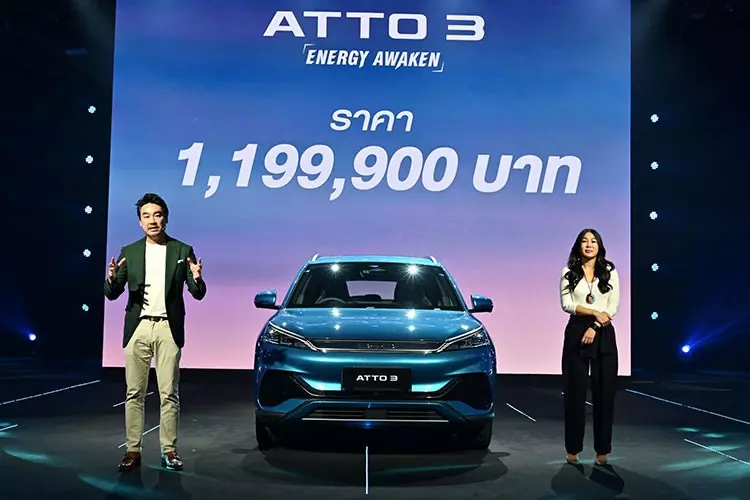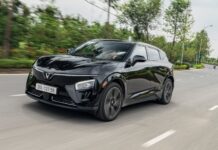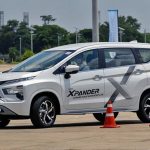The opening of Chinese EV maker BYD’s Thailand factory in early July was dampened by the lackluster response from car owners of this Chinese automaker. BYD has offered further discounts on their Atto 3 SUV this month in the Thai market, striving to maintain their lead in an increasingly crowded and competitive market.
The discounts of up to 340,000 baht ($9,460) have left current owners disgruntled as it depreciates the resale value of their vehicles. Mr. Darakorn, a purchaser of the BYD Atto 3 just a month after its launch in Thailand, shared that with a bank loan and a 100,000 baht government subsidy, the SUV cost him 1,199,900 baht. He was advised that the price would increase within two months as the government subsidy expired. However, even the latest Atto models launched earlier this year are priced below 1 million baht. “Who would buy a car if they knew the price would drop by 340,000 baht a year later?” he said.

The BYD Atto 3’s launch price in the Thai market has now dropped by 340,000 baht
Mr. Darakorn has even urged BYD owners to form a group on Facebook to consider a class action lawsuit. Complaints have been lodged with the Thailand Consumer Protection Committee. The committee has since been ordered to investigate the escalating discounts offered by car manufacturers, including BYD.
This price war occurs as Thailand, the second-largest auto market in Asia, faces three threats: weak economic growth, high consumer debt, and an oversupply of electric vehicles, mostly imported from China.
The influx of completely built-up electric vehicles has shaken even the manufacturers and suppliers of auto parts for internal combustion engines, forcing them to cut production and close factories. The Federation of Thai Industries has lowered its annual production target to 1.7 million vehicles from 1.9 million.
Meanwhile, consumers are delaying purchases in anticipation of further price reductions from automakers later this year. Total vehicle sales declined by 24% in the first six months of this year compared to the same period in 2023. In June, only 47,600 vehicles were sold, nearly 17,000 fewer than last year.
Bank lending for auto purchases has decreased amid subdued auto demand, as reflected in the half-year earnings results released in mid-July. TMB Thanachart Bank witnessed a 4.8% decline in its auto loan portfolio, which accounts for 30% of its total outstanding loans. Overall retail loans contracted, excluding the ‘Cash Your Car’ program, where customers borrow against their vehicles’ value.
Krungsri Bank’s half-year profit fell 7.9% year-on-year due to expected higher credit losses, partly from auto loans. The bank stated that its results reflected the decline in auto sales and tighter lending criteria by financial institutions “amid weakening repayment capacity of hire-purchase and auto loan customers.”
The auto loan rejection rate has climbed above 30%, contributing to the decline in auto sales. Household debt in Thailand stands at 16.3 trillion baht, equivalent to 91% of the country’s gross domestic product. Banks have over 1 trillion baht in non-performing loans, meaning they are more than 90 days past due. The rate of inefficient auto lending increased the most in the second quarter, surging 32% year-on-year.
Leading banks estimate Thailand’s GDP to grow by only 2.6% this year, in line with the central bank’s forecast. Personal consumption is expected to slow as government subsidies for consumers taper off.
With the local auto industry blaming government subsidies for the electric vehicle surplus, Thailand’s National Electric Vehicle Committee has approved new subsidies for hybrid vehicles on Friday. Thai parts manufacturers have long supplied hybrid vehicles, combining batteries with internal combustion engines, containing many similar parts to traditional cars, and they are cheaper than battery-powered electric vehicles.
“In the next 5 to 10 years, sales will mainly come from HEVs (Hybrid Electric Vehicles) and BEVs (Battery Electric Vehicles). Support measures for HEVs are needed to encourage continued investment in producing high-value parts for domestic production,” said Narit Therdsteerasukdi, Secretary-General of the Thailand Board of Investment.
If approved by the cabinet, the special consumption tax for hybrid vehicles will be reduced to 6% or 9%, depending on the carbon dioxide emissions of the model. The rate will be fixed from 2028 to 2032 for automakers investing 3 billion baht in Thailand between 2024 and 2027.
According to Nikkei












































